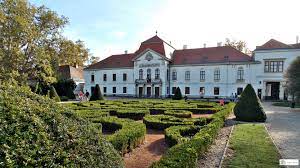Language and thinking are absolutely connected. At the same time, the poem must be believed, the poem is the true authenticity; in my mother tongue - says the poet László Kaiser. Pál Molnár's interview.
"You fear, you hide, you fight, / maybe you survive, / maybe you survive, / a self-commando, / a poor intellectual," László Kaiser writes in his poem "Mint a bózótharchosok in his recently published volume " Az én térfelem - 70 év - 70 vers"
In the afterword, his work is also called the seventh book, more precisely Imre Madarász. Why is the age of seventy magical, why does a person feel that he has already done everything important and still wants to produce something in the remaining time here, on his earthly path?
The seventy-year-old is often referred to both humorously and seriously as a septuagenarian. No problem. This is a balance-making anniversary, a reason to look back and hope to look forward. With twenty or so volumes under my belt, I may not be complaining, although I started publishing regularly relatively late, which is how my volumes of essays and studies, interviews, short stories and, of course, poems were born. Anyway, seventy years (and the possible or not possible turning seventy) makes you think, for me it's that I try to manage myself better in the time that is inevitably running out, this means that I try to fill almost every opportunity meaningfully and avoid tension-causing situations, especially people.
Perhaps still / mildly worthy, / Christ cries and Gandhi / hungers for you too / there is no loud word, / whip on the nail, / you are already in the motherland, / we are still in the motherland – he writes in his poem dedicated to the memory of Gáspár Nagy of the Balassi-sword called “Selídenly worthy”. But "Gassi" Nagy also wrote that murderers should be called by their names... Why do we have to go over gentleness?
Murderers and crime must indeed be called by name, but you can often achieve more with gentleness. There is no recipe. There are situations and intelligences. In a poem, a person is an angel and a devil at the same time, not to mention – at least for me – role-playing poems. There is no recipe, this is the main lesson. Man's deeds and poems are the essence. Most of all, the poem. I try to be and remain an intellectual, but life and work form a unity with great ratios. The morality of the work is its quality, the artist's is the "midwifery of the light" of the work, using the beautiful words of László Németh, the everyday morality (or immorality) of the creator is another matter. These are difficult matters.
"There is no other home, only the mother tongue," you quote Sándort Márai as the introduction to his poem "The Last Home". In the hours before his death, Ede Teller had Toldi read to him and corrected the text where his nurse made mistakes. As a poet, why is it important for you to marvel at creation in Hungarian?
I'm Hungarian, deep down, it can't be any other way. Language and thinking are absolutely connected. At the same time, you have to believe in the poem, the poem is the real authenticity - in my native language. I am quoting from one of my volumes, which examines the subjectivity of the poet and the universality of the poem. "Only I can be the hero of my poem," Babits wrote, while Ady wrote: "I was the Lord, the Poem was just a humble servant." I confidently, unabashedly and modestly: I don't know! I don't know because I wrote and wrote the poems; I wrote about myself, a lot; I wrote it in my own name, not necessarily about myself, but about what I see, what they make me see. And I realized in shock: let's say I'm fine, but the hero and anti-hero of the poems, who is only partly me: he's not very well! It is not good, because scanning the world, talking about the world, about trends, individuals, lives, destinies, loneliness and loves and drinks: there is not much reason to be happy, but there is a reason to be sad. Sadly, too! So, after all, how am I doing? The man is almost magnificent, the poet less so. And because I also have a hard time tying the threads of reality, imagination and empathy: believe the poems first, only then me.
Featured Image: Pixabay













